Hand-coloured etchings of 1870s street
scenes in Paris by A.-P Martial
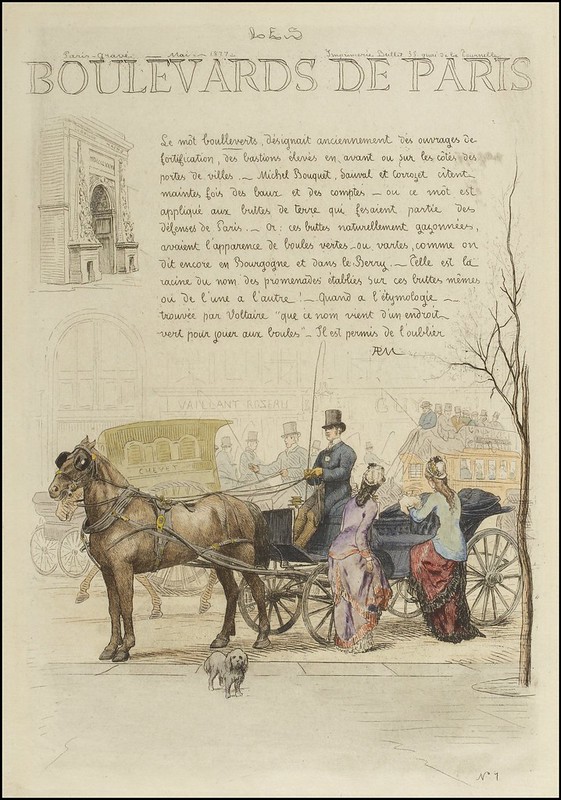
'Les Boulevards de Paris' - title page / preface
*the text is approx. the etymology of the word boulevard
*horse-drawn vehicles = véhicules hippomobiles
*Porte Saint-Denis [monument] seen top left
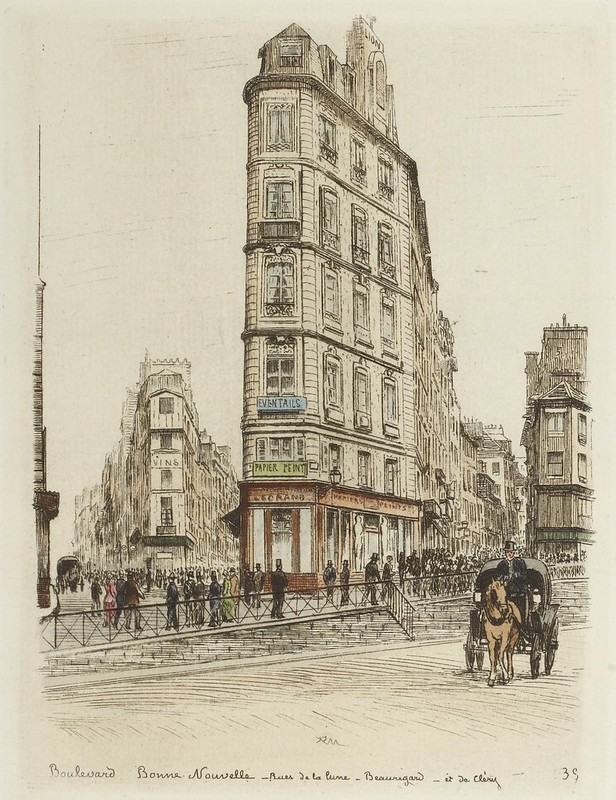
Boulevard Bonne-Nouvelle : Rues de la Lune, Beauregard et de Cléry

Boulevard Poissonnière : Voitures, chaussées (cars [cabs], roads)
*featuring Colonnes Morris : Morris columns (in colour) displaying advertisements

Passage de l'Opéra : Boulevard des Italiens^

Boulevard Saint-Martin : Théâtres de la Renaissance^ et de la Porte Saint Martin

Bureau des omnibus
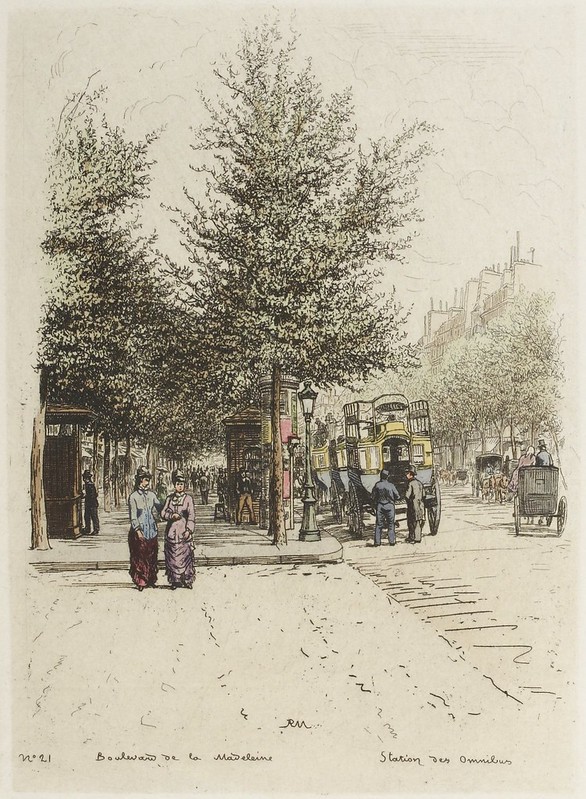
Boulevard de la Madeleine : Station des Omnibus

Omnibus de l'Odéon
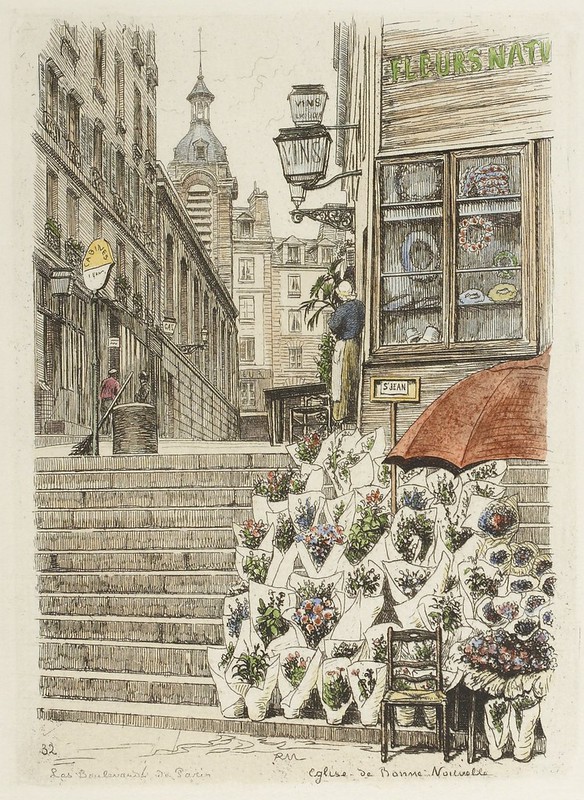
Eglise de Bonne-Nouvelle
*Florist's street store with the Church of Good News in the background
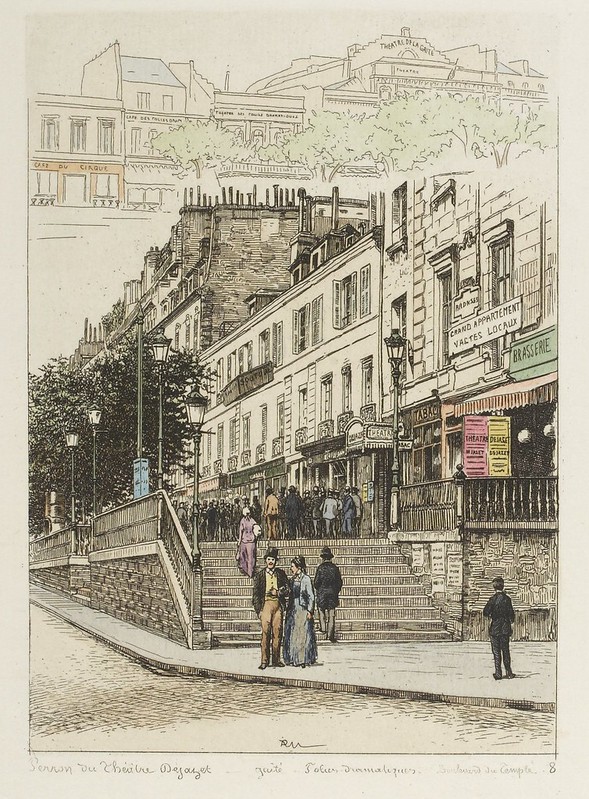
Perron du Théâtre Déjazet Gaité - Folies dramatiques : Boulevard du Temple

Refuge rue de Sèze

Tavernier Bonvalet - Jardin Turc : Boulevard du Temple

Boulevard Montmartre. : Passage Jouffroy
{Les Passages Couverts}

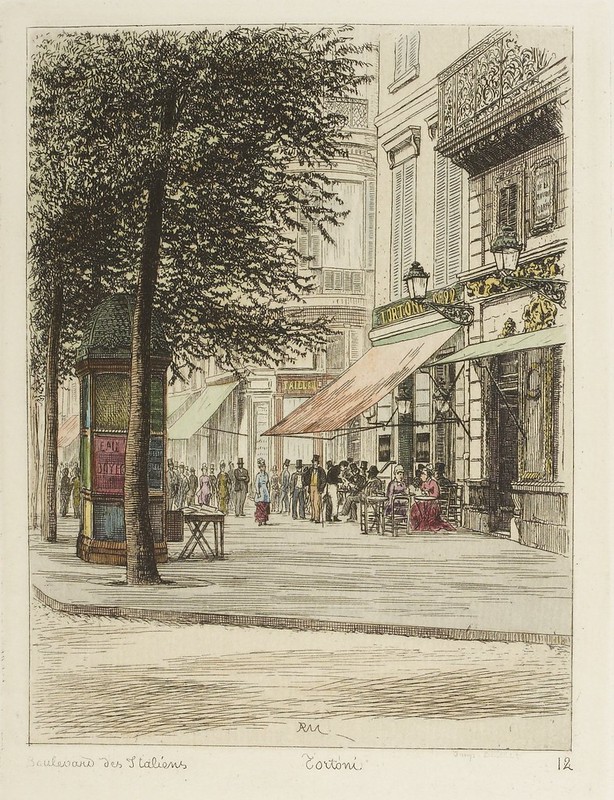
Boulevard des Italiens : Tortoni
*Tortoni: the dessert legends: ONE -><- TWO

Boulevard des Italiens - Librairie Nouvelle^

Boulevard des Capucines : Place de l'Opéra
"The Boulevard des Capucines is one of the four 'grands boulevards' in Paris, a chain of boulevards running east-west that also includes Boulevard de la Madeleine, Boulevard des Italiens, and Boulevard Montmartre."
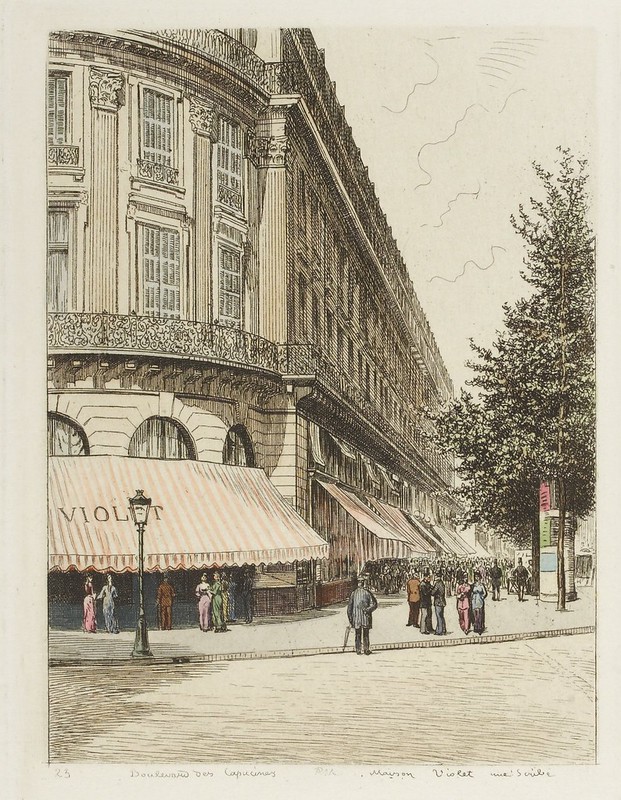
Boulevard des Capucines : Maison Violet rue Scribe
"The tone is essentially aristocratic. Inner boudoirs sell the paraphernalia of the toilette, notably the house’s own exclusive ‘Reine des Abeilles’, or Queen Bee, cosmetic preparations, by appointment to the Empress."*"*The Guide to Gay Paree 1869 – Part 5: Shopping" is an excerpt from 'Paris Partout! A guide for the English and American Traveller in 1869 or How to see PARIS for 5 guineas' [see all 8 posts excerpted from that book] -- from the Victorian Paris: Life in 19th Century Paris blog.
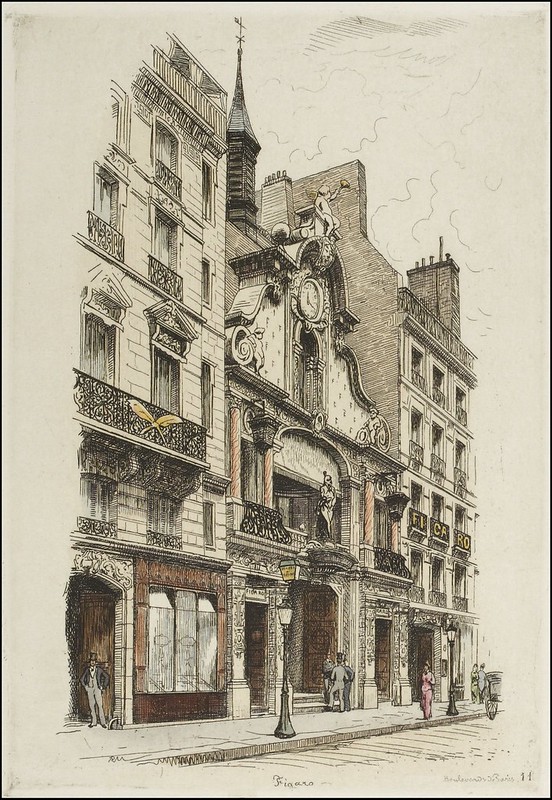
Figaro
*Le Figaro is a daily newspaper founded in 1826 [F--E--W]

Boulevard Bonne Nouvelle : Poste de Police
*Florist (+/- itinerant traders) outside police station

Boulevard Beaumarchais - Théâtre Beaumarchais
*The Beaumarchais Theatre, in the 4th arrondissement^, was established in 1835 and rebuilt in 1892 (the scene features a street toilet)
{All the images above have been cropped from their usual appearance as centrally-located, small illustrations on otherwise blank pages; a few have been very lightly background cleaned. Library stamps have been removed from each print and the images above with black borders were spliced together from screenshots}
'Les Boulevards de Paris' (1877) consists - here - of a suite of forty six etched prints by M-Potémont, hosted by Bibliothèque nationale de France, département Estampes et photographie. [other names associated with this work : E de Saulnat, Xavier Aubryet, Faugere-Dubourg and (?V) Prouté -- editor(s) & publisher(s)]
I say -here-, above, as it seems that a few different editions of this material may have been released - perhaps for different markets - in 1877 (and after then too). One book has half the number of illustrations; another has a longer title and there might be varying amounts of accompanying text as well. All of this is quite esoteric and beyond the scope of this blog entry: it's something for the keen bibliographers out there to investigate, if they wish. [the situation is made complicated by the illustrator's long history of sketching Parisian outdoor scenes]
Jules Adolphe Theodore Martial-Potémont (known professionally, most often, as A.-P Martial) (1827-1883) was a French painter, engraver and etcher. His preferred medium was etching in which he produced a larger number of illustrations over a forty year period, primarily for the publisher, Alfred Cadart.
Martial spent some years honing his craft on the island of Réunion (near Madagascar) before returning for the Universal Exhibition in Paris in 1867. His art was on display at the Salon of Paris for four decades and, despite the range of subjects and styles through his works (from children's books to landscape painting), Martial was perhaps best remembered for the etchings he made of Paris scenes - in a sense he was the city's historical reporter.
As Neil writes at Idbury Prints:--->>> "A great many of Martial's etchings take his home city of Paris as their subject, starting with the 300 etchings collected as L'Ancien Paris in 1864, and including several portolios inspired by the turmoils of 1870-1871. All published by Cadart, these include Paris pendant la Siège (12 etchings), Paris Incendié (12 etchings), Paris sous la Commune (12 etchings), Les femmes de Paris pendant la guerre (15 etchings), Les Marins de la défense de Paris (16 etchings), and Les Prussiens chez nous (12 etchings), comprising six or the twelve parts of Cadart's grand publication Paris, Siège et Commune."'Les Boulevards de Paris' was no doubt an homage to the artist's birthplace, but since publication, it has been rightfully touted as an advertisement and travel guide for prospective visitors to the city of Paris.
- Adolphe Martial-Potémont Wikipedia [T]
- Idbury Prints on A. -P Marial.
- VIA the BnF's Gallica blog, which also reports on some older Martial prints. [T]
- Artfact lot [T].
- Entry at Toronto Library.
- Previously: France.
- Addit. Amazon listing.
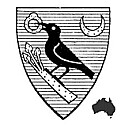








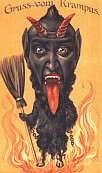
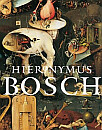
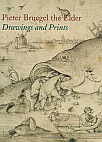
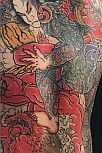
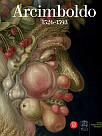

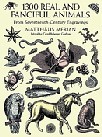
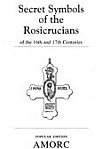


4 comments :
Magnifique ! Étudiant j'ai arpenté mille fois les grands boulevards de la République à l'Opéra. Merci pour cette trouvaille.
Love these. Charming.
good jobs
Thank you for posting these.
Post a Comment
Comments are all moderated so don't waste your time spamming: they will never show up.
If you include ANY links that aren't pertinent to the blog post or discussion they will be deleted and a rash will break out in your underwear.
Also: please play the ball and not the person.
Note: only a member of this blog may post a comment.